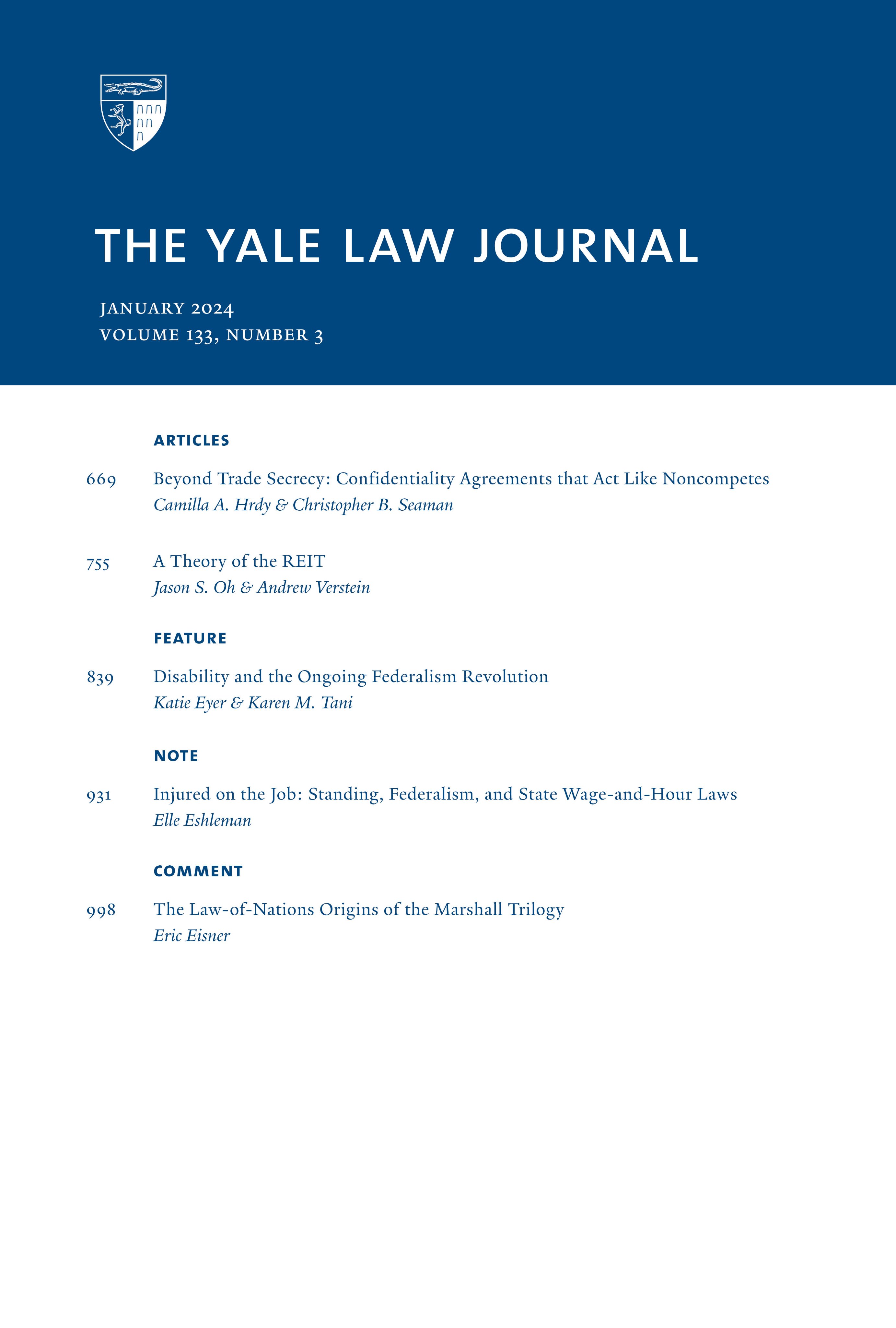公共行动的代价:宪法主义与立法成本的司法操纵
IF 5.2
1区 社会学
Q1 LAW
引用次数: 21
摘要
本文认为,法院可以,而且通常应该,通过制定理论来实施宪法保障,这些理论提高了政府决策者制定有宪法问题的政策的成本。这种间接的方法可能会实现一种隐含的利益平衡,在这种平衡中,对宪法价值的损害与政府在受到挑战的政策中的利益强度进行权衡,比其他方法更有效。当政府比审查法院更了解被质疑的政策对宪法相关利益的影响时,提高的制定成本充当了一种筛选工具:如果政府在面临大量额外的制定成本时仍会制定既定政策,那么该政策服务于重大政府利益的可能性可能更高。本文首先展开了理论论证,即操纵立法成本的理论如何(以及在什么条件下)可能比需要对竞争利益的相对实力进行直接司法评估的理论更有效地实现宪法的司法实施。该条进一步认为,联邦司法机构已经有能力形成以这种方式发挥作用的原则,而且目前的原则对立法制定成本的影响确实超出了人们的普遍认识。作者。哈佛法学院助理教授。我感谢Richard Fallon, Eugene Kontorovich, Daryl Levinson, John Manning, Jonathan Masur, John McGinnis, Martha Minow, Bob Powell, Mark Tushnet, Adrian Vermeule以及2007年哈佛-伯克利宪法与后果会议的参与者对早期草案的有益评论。公共行动的代价本文章由计算机程序翻译,如有差异,请以英文原文为准。
The Price of Public Action: Constitutional Doctrine and the Judicial Manipulation of Legislative Enactment Costs
This Article argues that courts can, and often should, implement constitutional guarantees by crafting doctrines that raise the costs to government decisionmakers of enacting constitutionally problematic policies. This indirect approach may implement a kind of implicit balancing of interests, in which the damage to constitutional values is weighed against the strength of the government’s interest in the challenged policy, more effectively than alternative approaches. When the government has better information than the reviewing court about the effect of the challenged policy on constitutionally relevant interests, heightened enactment costs act as a kind of screening device: if the government would still enact a given policy in the face of substantial additional enactment costs, the probability that the policy serves significant government interests is likely to be higher. This Article first develops the theoretical argument as to how (and under what conditions) doctrines that manipulate legislative enactment costs may be more effective tools for judicial implementation of the Constitution than doctrines that require direct judicial assessment of the relative strength of the competing interests. The Article further contends that the federal judiciary already has the capacity to fashion doctrines that function in this way, and indeed current doctrine influences legislative enactment costs more than has generally been appreciated. author. Assistant Professor, Harvard Law School. I am grateful to Richard Fallon, Eugene Kontorovich, Daryl Levinson, John Manning, Jonathan Masur, John McGinnis, Martha Minow, Bob Powell, Mark Tushnet, Adrian Vermeule, and participants in the 2007 Harvard-Berkeley Conference on Constitutions & Consequences for helpful comments on earlier drafts. STEPHENSON OP 10/14/2008 11:21:15 AM the price of public action
求助全文
通过发布文献求助,成功后即可免费获取论文全文。
去求助
来源期刊

Yale Law Journal
LAW-
CiteScore
4.50
自引率
6.20%
发文量
0
期刊介绍:
The Yale Law Journal Online is the online companion to The Yale Law Journal. It replaces The Pocket Part, which was the first such companion to be published by a leading law review. YLJ Online will continue The Pocket Part"s mission of augmenting the scholarship printed in The Yale Law Journal by providing original Essays, legal commentaries, responses to articles printed in the Journal, podcast and iTunes University recordings of various pieces, and other works by both established and emerging academics and practitioners.
 求助内容:
求助内容: 应助结果提醒方式:
应助结果提醒方式:


